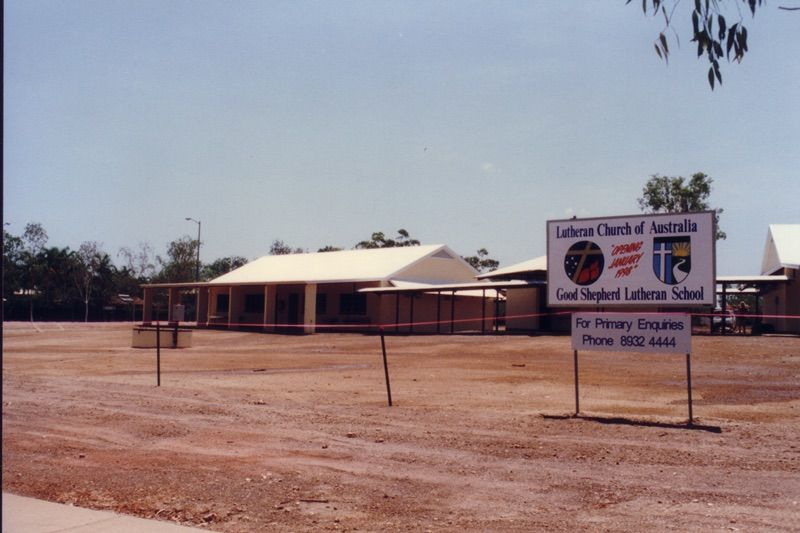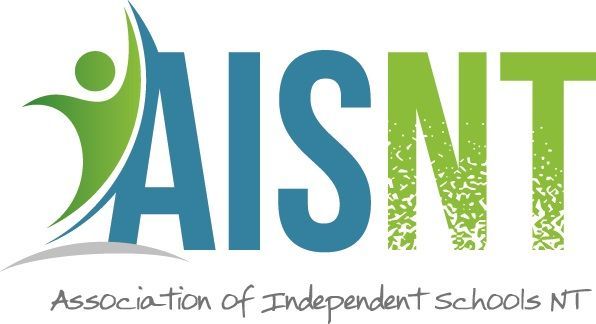Community, Trust and Good Communication
The recent AISNT Leadership Forum in Alice was really valuable and the people I have spoken to felt they had gained much from it. A highlight was members being prepared to discuss openly about their situations, ideas and aspirations which lead to really rich and open discussion. Trust is a valuable factor in any group activity and that feeling was certainly in the room. I felt the sharing highlighted the wonderful variety of approaches to the meaningful education schools are providing for their particular and unique communities. It was not regulations page 1, 50 or 100 but rather as a result of ensuring the communities, which schools serve, are understood and what is offered is going to meet the needs of those communities.
Leading this are a really fine group of dedicated Principals and senior staff most of whom were at the Forum and of course sharing their particular thoughts was enriching to all.
Listening to the stories of schools in really remote places made me draw a mental parallel to the story of Jim Darcy a stockman badly injured in a fall from a horse about 50 kilometers south of Halls Creek, 29 July 1917.The only hope was to get him to the post office in Halls Creek where the postmaster Fred Tuckett was responsible for first aid. Recognising the seriousness of Jim’s injury, Fred administered morphine. The Wyndham and Derby doctors were both out of town so Fred contacted his former first aid instructor in Perth, Dr. Holland. This contact was not by radio but telegraph using Morse code. Dr Holland diagnosed that Darcy had a ruptured bladder. He advised the postmaster that he would have to operate on Jim immediately. At this point, writing this story, I’ve got goose bumps.
Following instructions sent by telegraph (remember Fred’s training was first aid not complicated surgery), he operated on Jim using just a pocket-knife and cut throat razor. How brave was Fred! I’m sure he was terrified but he had a life to save. The operation was a success. Jim began to make progress, but complications set in and Dr Holland realised he was needed. Travelling by cattle boat, Model T Ford, horse and sulky and finally walking, he covered the 3,700 km, but the journey took two weeks. He arrived to find that Jim Darcy had died a day earlier as a result of the complications and malaria.
This remarkable story caught the attention of the Superintendent of the new Australian Inland Mission, Rev. Dr John Flynn, who understood the challenges of isolation and so set about establishing the Australian Inland Mission Aerial Medical Service at Cloncurry in 1928. This of course became the RFDS as we know it.
Some of our schools, as described by Linda Miller and Deborah Bateman in their wonderful vivid presentation on Mapuru, carry the same responsibilities for care, well beyond education, like the postmaster at Halls Creek. They are prepared to extract bogged cars, administer the Flying Doctor / Care Flight sophisticated first aid cupboard, which they need to know how to use, manage challenging communication situations, ensuring the airfield is safe for aircraft to land to mention a few of the other responsibilities beyond the school.
The school works well because it is part of the community, not apart from it the people of Mapuru are very much involved in it and Linda and Deborah are excellent at listening and are able to organise with the local people schooling which fits in with what they want. Listening, it seems, is such an important factor in producing successful, very remote schooling.
Dr Stephen Brown is a regular at our forums, has a great understanding of the NT and able, in his engaging style, to provide interesting perspectives on the world of the Principal. The daily pressure on a Principal is significant and there is often little time to reflect and reset. His sessions do give an opportunity for this and provide Principals with the permission to stop and reflect about themselves. The captain must look at the chart so the ship sails in the right direction.
Stephen’s first chapter was termed “Understanding Self”. This topic, I think, pretty quickly leads to self-reflection. If you understand self then you are more able to lead others. Possibly understanding self completely is a lifetime journey. There was plenty to reflect on in this topic, But some “take aways” I received were:
- distinguish role from self as confusing the role of Principal with self is a trap.
- keep confidants and don’t confuse them with allies. I’m still teasing that out.
- seek sanctuary by having a place of renewal. This to me is important but easy not to do.
- Two other facts which rank true were the need to understand the “current state” and to have knowledge of the “aspired state.”
- If you are experiencing stress, what are the characteristics of this and how much are you prepared to tolerate before changing action.
Stephen also mentioned Howard Gardner’s “Five Minds for the Future”. I’m always interested in Howard Gardner because his “Theory Of Multiple Intelligence” seemed to make sense to me from my own experience. I’m not fully across this theory but am listening to the book - thank goodness for audiobooks! I’ll write some more on it when I’m finished.
As a start his five minds are:
- Disciplined mind
- Synthesizing mind
- Creating mind
- Respectful mind
- Ethical mind.
Basically he is saying that these five minds are what the fast-paced future will demand.
The disciplined mind is to learn one profession and the major thinking behind it. This may include an understanding from a variety of disciplines.
The synthesizing mind is trained to organize the massive amounts of information and communicate this effectively to others.
The creating mind is to explore unasked questions and uncover new phenomena and insightful appropriate answers.
The respectful mind enables people to appreciate the differences between human beings. This should enable people to understand and work more successfully with people.
The ethical mind, to understand that differences do exist between people, enabling them to have the capacity to work with everyone. Gardner contends that without these minds, society could be overwhelmed by information, unable to succeed in the workplace and will lack the capacity and understanding to thrive personally and professionally. Possibly understanding of these minds will become a key target of education.
Stephen also introduced the idea of discovering one’s Authentic Leadership. No leader is the same as another - they are different but there should be no reason, if they are able to lead effectively, that they won’t be a good leader, though they may be a different type of leader.
Stephen’s tip about presenting to a group was fairly salutary. The first seven words of your address (etc) will either “cook” or not “cook” the goose, for it is in the first 7 words that a listener will decide whether to listen or not!
The words “I am enough” were presented by Stephen as something that a leader who is successful should be able to acknowledge, rather than the endless search for “more than enough” when it is not warranted.
I hope I’ve summarised some of his thoughts faithfully. If there is at least one idea amongst these which you find helpful or promotes constructive thought, then you are ahead! I had this philosophy when visiting schools. I knew I couldn’t absorb everything but if I locked onto at least one thing I was making progress.
Quotes which might be helpful:
“You don’t need anybody to tell you who you are or what you are. You are what you are”
- John Lennon: member of the Beatles, Singer and Song Writer.
“So ring the bells that still can ring, Forget your perfect offering There is a crack in everything That’s how the light gets in.”
- Leonard Cohen: Singer, song writer.
“The two most important things that I did learn were that you were as powerful and strong as you allow yourself to be, and the most difficult part of any endeavour is taking the first step, making the first decision.”
- Robyn Davidson: an Australian writer and Adventurer, famous for her book “Tracks” about her 2,700 km trek across the western Australian deserts using camels.
“You don’t have to be someone special to achieve something amazing. You’ve just got to have a dream, believe in it and work hard.”
- Jessica Watson: Record breaking around the world 16-year-old solo sailor, Australian.
Chris Tudor
Principal Liaison & AISNT Historian



